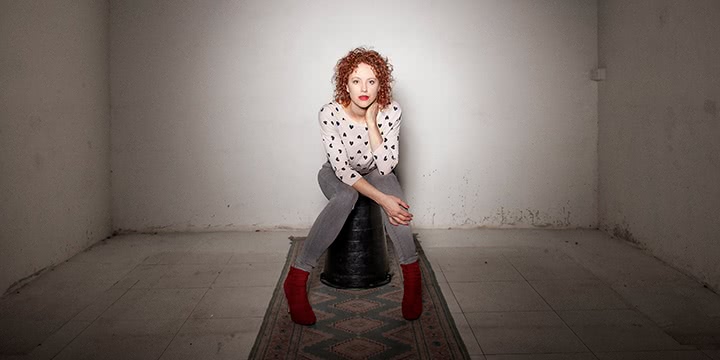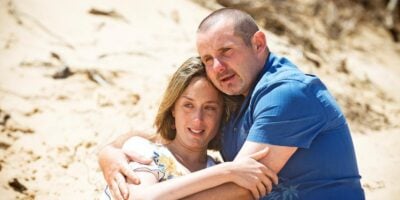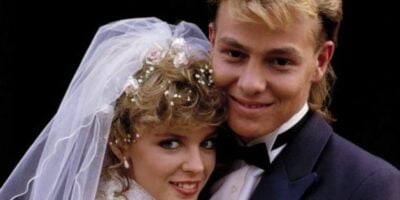What’s in a name? As far as Kerri Glasscock’s concerned, a lot.
The chief executive of the Sydney Fringe Festival is still reeling from the recent difficulty she had overseeing the process by which each of the Festival’s bevy of performers slotted themselves into genres. After all, the Fringe is dedicated to bucking the norm and resisting trends, so inserting some of the Fest’s stranger shows into categories proved to be a near-impossible task.
“Ultimately, it’s the artist’s choice where they want to be listed,” says Glasscock, still sounding vaguely exasperated. “Actually, it’s a conversation that comes up a lot for all Fringe festivals. We have a gathering called the World Fringe Congress every two years, and this is a question that comes up all the time: ‘Is it okay to put things in a genre?’ Interestingly enough, New Zealand Fringe has recently done away with all genres. They just listed all the events.”
Though Glasscock admits that Sydney Fringe is “not quite ready” to head down that path and follow New Zealand’s lead, she sounds envious when she discusses the effect doing away with genre had on our Kiwi brethren’s festival. “The New Zealand Fringe organisers said it was really interesting. They said people were just going to a show based on their own instincts, so they had people going to shows that they wouldn’t usually, and adults going to kids shows.”
But genre doesn’t simply create the type of audience bias that sees lovers of the stage skipping straight to the theatre section of the Festival’s packed program guide: some of the shows in this year’s fringe simply cannot be summed up in a paragraph, let alone a genre, and many of the acts incorporate a whole range of artistic styles. “We’re not genre specific,” says Glasscock. “We span all genres. And it’s not just about talks or events: it’s about spanning all aspects of visual arts. It’s really about the local conversation for us.”
Indeed, the phrase ‘local conversation’ is so key to the Fringe that it could almost be used as its tagline. Glasscock is at pains to stress that the Festival has no strict guiding philosophy, but she evidently believes in the importance of Sydneysiders telling Sydney-centric stories. “We often say to people that we would love to call the Sydney Fringe the Sydney Festival if we could, because we really are indicative of the Sydney voice,” Glasscock explains. “We really are about saying, ‘These are our local artists and we love them, and here are the stories we’re telling that are about us.’”
Aside from its strong emphasis on the local scene, the Festival is also defined by a deep-seated resistance to curation.
Though Glasscock and her team of organisers have certain end goals in mind, they’re not interested in catering the Festival to any particular mindset, and they are keen to create as varied a program as possible. “When we’re planning the Festival lineup, there is a case of anything goes,” she says. “We’re a Fringe festival – we like to be inclusive. But fundamentally it’s about the artists. They’re the core of everything that we do.
“We’re different to Fringe festivals like Edinburgh or Adelaide,” Glasscock continues, “in that a good 80 per cent of our artists are local Sydney residents. And a good 90 per cent of the venues we use are local, existing venues. So a big part of what we do is highlighting what they do all year round, but also adding to what they do, and we’re not laying on top something we want. We want something that is really descriptive and indicative of stuff that we get all year round.”
That said, the Festival’s hands-off approach isn’t a cast iron rule, and Glasscock says there are times when she and her fellow organisers push the program in a particular direction – though, of course, always with the Festival’s best interest in mind. “We’re technically an open-access festival, like most Fringe festivals, so people just register their events. But obviously there are so many other things that go on behind the scenes with partnerships, and public events and our partnerships with venues, so some things are driven from our office. And sometimes there will be certain parts of our program that we will reach out to other people for.
“For example, we often reach out for our kids and family program, because it’s something fairly new for our Fringe festival,” she says. “We really want to make sure that there’s a really great quality program on that front. We’re nurturing it. We often reach out to people we want to be involved.”
Glasscock’s concerns about maintaining quality have paid off: the Fringe boasts an array of world-class acts this year, the kind of shows that will already have lovers of the arts frothing at the mouth. But for Glasscock herself, the sheer amount of quality available is proving oddly problematic, insofar as she now finds it impossible to select any events in the program that she would recommend over any other.
“There’s just too many,” she says with a laugh. “There’s always so many – I always find it difficult talking about shows that I am particularly interested in! I’m always excited by work that crosses genres, and something that really has something interesting to say and pushes certain boundaries.” Given that the Festival’s modus operandi is pushing boundaries, Glasscock might just well find herself in luck.
Sydney Fringe Festival runs Thursday September 1 – Friday September 30 at various locations around Sydney. For more the full calendar and tickets head to sydneyfringe.com.



































